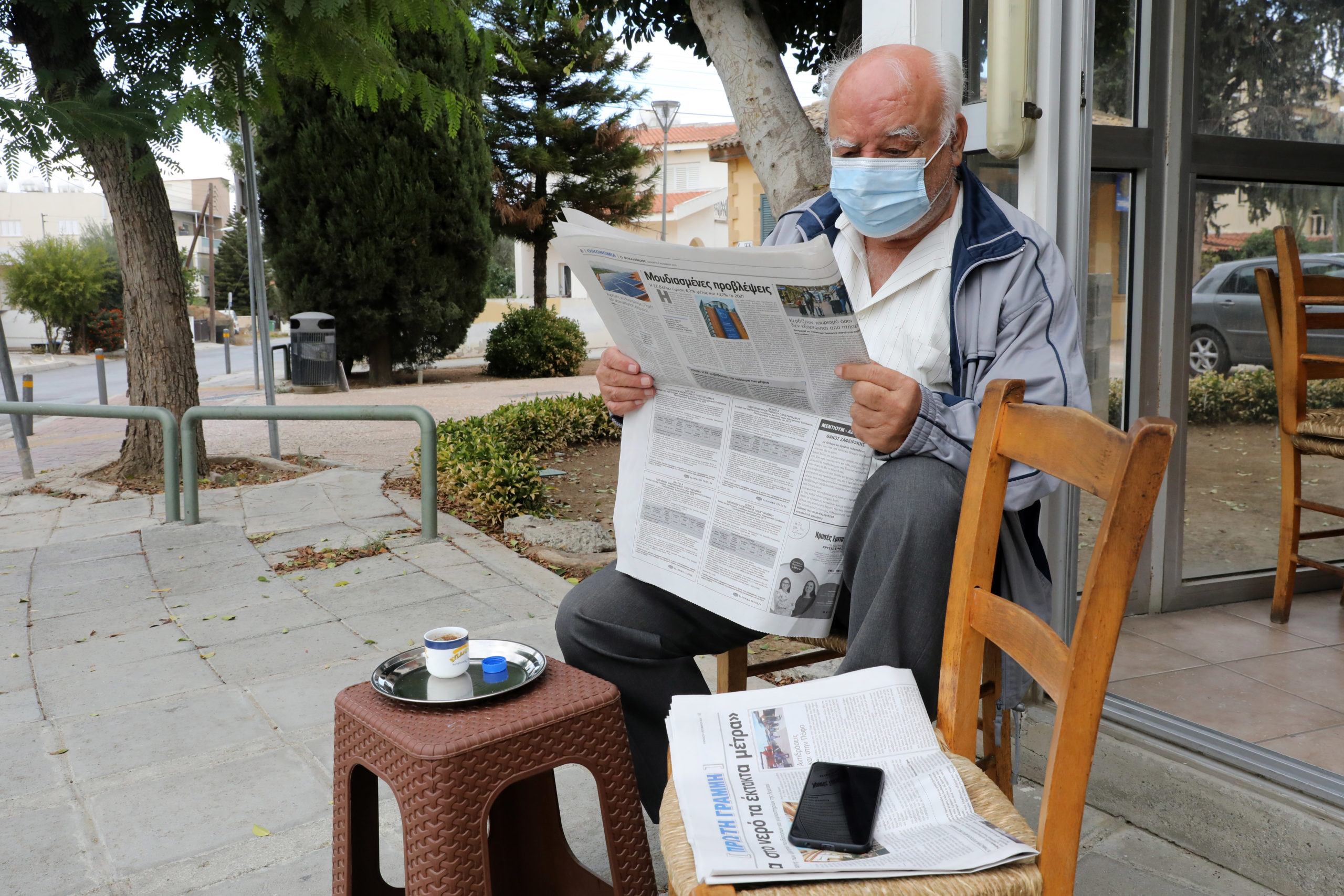The Third Age Observatory, an NGO looking out for senior citizens’ rights in Cyprus, has called on the authorities to explain why the four elderly people who were reported on Monday to have died from COVID-19 this month, were not admitted to any hospital.
Instead, they were left to be treated by staff at their nursing homes in Nicosia.
Demos Antoniou, president of the Cyprus Third Age Observatory, told the Financial Mirror that the matter raises concern as the elderly people involved were found positive as early as November 25, with the first patient dying on December 2.
“Why were they not taken to hospital in the meantime? Why did the authorities take so long to report their deaths?” wondered Antoniou.
The Health Ministry confirmed the deaths on Monday. However, it did not include them in the daily coronavirus report saying they died earlier in December in two nursing homes in Nicosia where they were residents and being treated.
A man aged 86 and a 100-year-old woman died on December 2 at the Klimentios nursing home.
The other two deaths were a 90-year-old woman who died on December 13 and a 78-year-old man, who died a day later, both residents at the Golden Age nursing home.
“We cannot be sure that there were any more deaths from COVID-19 that have gone unreported,” said Antoniou.
Asked by the Financial Mirror, a Health Ministry spokesperson said the elderly people who died from COVID-19 were not considered to need hospitalisation.
“The clinical picture of the patients did not dictate their transfer to a hospital.”
“As we have said in the past, the people remaining in care homes are treated in isolation from the rest of the residents,” said the ministry official.
Health authorities slow to take measures
Antoniou argued that the real issue is that the health authorities were slow to take measures at homes and care centres.
“A maximum of two visits a month by the Labour Ministry or Health Ministry inspectors were far from adequate. We had been warning authorities since March that we would have tragic results if the virus spread to nursing homes,” he said.
“We saw this coming, as we have witnessed what has happened in care homes across the European Union. In the UK, authorities still do not have a clear picture of COVID-19 deaths in homes,” he said.
Noting that the Ministry has now drawn on its lessons and has increased checks at care homes and community centres, Antoniou said that the observatory had been asking authorities to train nursing staff at care homes on how to look after people infected with the coronavirus.
“Unfortunately, measures were only taken in December,” he noted.
Antoniou explained that fortunately the virus had infiltrated nursing homes earlier, as “at this rate we would have had even more tragic results”.
At the same time, Antoniou made a heartfelt appeal COVID-deniers and vaccine objectors.
“Almost every other day we find ourselves being attacked by COVID-19 deniers, accusing us of attributing the deaths to people with a weak health either from other underlining problems or old age. Who can decide when it is acceptable for one to die? These people had at least the chance to spend one more Christmas with their loved ones,” he said.
“The observatory, before the crisis, would organise weekly events for the elderly in homes. I can tell you that the most active, lively, bright people were in their mid-90s,” added Antoniou.
He concluded by urging people to get vaccinated in order to protect the groups of the population who are the most vulnerable.
Some 96 died as a result of being infected with COVID-19, of which nearly half or 45 in December alone. Of all the deaths, 62 were men and 34 women, with an average age of 79 years.
Antoniou said that according to information received from the Health Ministry, vaccinations are to commence on Sunday with health authorities visiting homes in mobile units to vaccinate the elderly residents.










